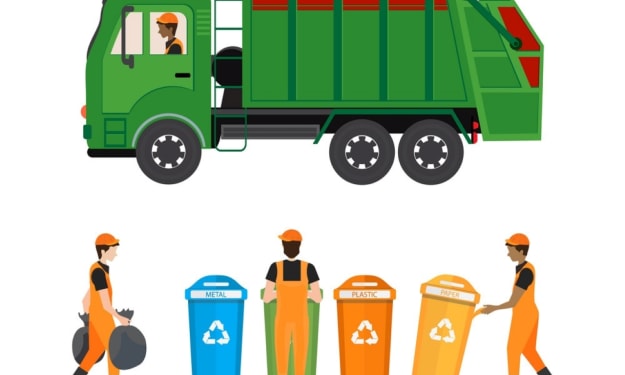Caffeine Myths Debunked
Myths about caffeine

Caffeine is one of the most widely consumed psychoactive substances in the world, found in coffee, tea, energy drinks, sodas, and even certain medications. With its popularity, numerous myths and misconceptions about caffeine have emerged over time. In this comprehensive explanation, we will delve deeper into the various aspects of caffeine, debunking myths, and shedding light on its effects on the body and mind.
Myth 1: Caffeine will make up for lost sleep.
One of the most common misconceptions is that consuming caffeine can compensate for inadequate sleep. While caffeine can temporarily boost alertness and reduce feelings of fatigue, it cannot replace the essential physiological and restorative benefits of sleep. Sleep is a complex process that involves various stages, including Rapid Eye Movement (REM) and non-REM sleep, each contributing to cognitive function, memory consolidation, and overall well-being. When we sleep, the brain undergoes important processes like clearing metabolic waste and rejuvenating neural connections. Caffeine may temporarily mask fatigue, but it cannot replace the vital functions that occur during sleep.
Myth 2: Caffeine detoxes your body.
Detoxification has become a buzzword in health and wellness circles, and some people believe that caffeine can serve as a detox agent. However, this is far from the truth. The human body has efficient detoxification mechanisms through the liver, kidneys, and gastrointestinal system, which remove harmful substances and waste products. Caffeine does not have any specific detoxifying properties. Moreover, attempting to use caffeine enemas or other unconventional methods for detoxification can be dangerous and lead to serious health complications.
Myth 3: Caffeine is addictive.
Caffeine is a stimulant that can create a sense of dependency, but it does not meet the criteria for addiction in the same way as substances like nicotine or opioids. While some individuals may experience withdrawal symptoms, such as headaches or irritability, if they suddenly stop consuming caffeine, it is generally not considered a true addiction. Most people can reduce or stop their caffeine intake without severe withdrawal effects. However, it is essential to be mindful of individual tolerance levels and consume caffeine in moderation.
Myth 4: Decaf coffee is caffeine-free.
Decaffeinated coffee, commonly referred to as decaf, does contain caffeine, albeit in reduced amounts. The process of decaffeination removes a significant portion of caffeine from the coffee beans, but a small percentage remains. The exact caffeine content can vary based on the coffee bean type, roasting process, and brewing method. People with specific health conditions, such as acid reflux, may be advised to limit caffeine intake and opt for decaf, as it contains significantly less caffeine than regular coffee.
Myth 5: Caffeine stunts growth in children and adolescents.
This myth likely stems from the idea that caffeine can interfere with calcium absorption, leading to concerns about its impact on bone health and growth in young individuals. However, the scientific evidence does not support this belief. Consuming moderate amounts of caffeine is generally safe for children and adolescents, and it does not seem to have a significant effect on bone growth when consumed within recommended limits.
Myth 6: Caffeine can mess with your heart rhythm.
Caffeine's impact on heart rhythm, or arrhythmia, has been a subject of debate and research. While caffeine can temporarily increase heart rate and blood pressure in some individuals, it does not appear to pose a significant risk for most healthy people. Studies suggest that moderate caffeine intake is generally safe for the heart and may even have some protective effects against certain heart conditions. However, people with specific heart conditions or sensitivities to caffeine should consult their healthcare providers about their caffeine consumption.
Myth 7: Tea is always healthier than coffee.
Tea and coffee both offer various health benefits and contain antioxidants, which can have positive effects on the body. However, claiming one to be universally healthier than the other oversimplifies the matter. The health benefits of tea and coffee depend on factors such as the specific type of tea or coffee, preparation methods, and individual health conditions. Green tea, for example, is rich in catechins, a type of antioxidant with potential health benefits, while certain types of coffee have been linked to reduced risk of certain diseases. The overall health impact of tea and coffee consumption will vary from person to person.
Myth 8: The way you prepare your coffee doesn't matter.
The preparation method of coffee can indeed affect its caffeine content and other chemical compounds present. Factors such as the coarseness of the grind, brewing time, water temperature, and even the type of coffee beans used can influence the final caffeine concentration in a cup of coffee. For instance, espresso typically contains higher caffeine levels than drip coffee due to the brewing process. Similarly, cold brew coffee may have a different caffeine content than hot-brewed coffee due to the extended steeping time. Understanding these variations can help individuals make informed choices about their caffeine intake based on their preferences and needs.
In conclusion, caffeine is a complex substance with various effects on the body and mind. While it offers some benefits, it is essential to consume it in moderation and be mindful of individual tolerance levels. The debunking of caffeine myths helps dispel common misconceptions and encourages informed decisions about its consumption. Always consult a healthcare professional for personalized advice, especially if you have specific health conditions or concerns about caffeine.





Comments
There are no comments for this story
Be the first to respond and start the conversation.